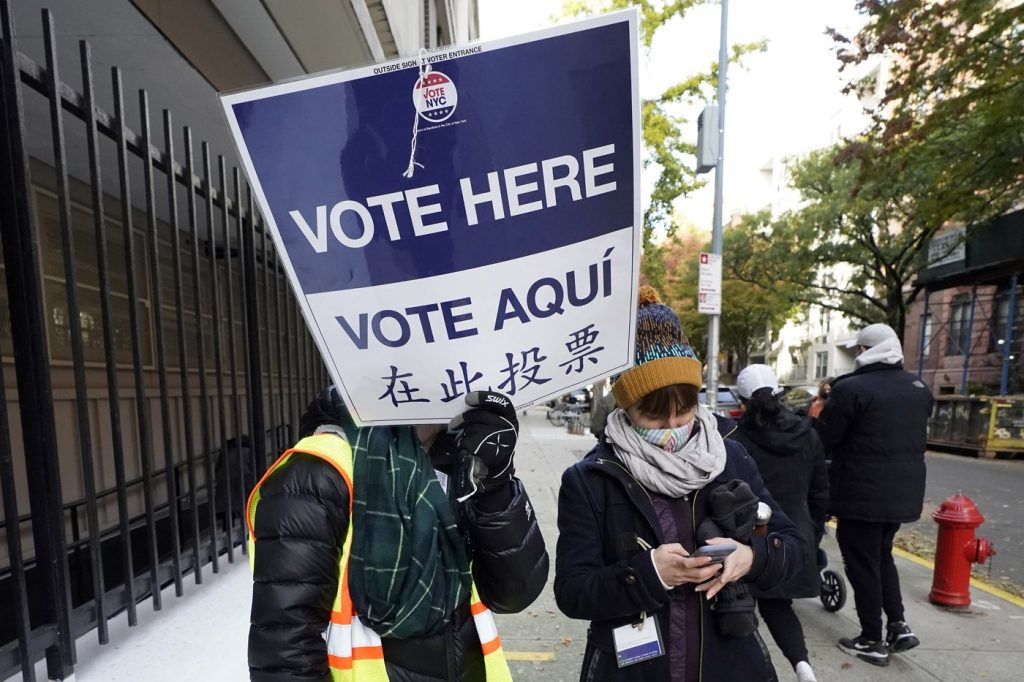On Thursday, New York state's top court concluded New York City's attempt to allow noncitizens to vote in municipal elections. In a decisive 6-1 ruling, the Court of Appeals stated that "the New York constitution as it stands today draws a firm line restricting voting to citizens."
New York City had not implemented its 2022 law, which was projected to enable around 800,000 noncitizens with legal permanent residency or work authorization in the U.S. to participate in elections for local offices such as mayor and city council. However, the law would not have allowed them to vote in federal elections for president or Congress, nor in state offices.
Following the passage of this legislation, state Republican officials quickly initiated a lawsuit against it, claiming it contravened the state constitution. Their challenge was upheld at all levels of state courts. With the final ruling, Republicans celebrated what they viewed as a reaffirmation of constitutional voter eligibility limits. NYGOP Chair Ed Cox proclaimed that the court's decision rightly rejected "efforts by radical Democrats on the New York City Council to permit noncitizen voting."
The city Law Department acknowledged the court's decision, signaling respect for the ruling. Notably, while New York has rescinded its measure, other parts of the country—like a few towns in Maryland and Vermont—have allowed noncitizens to vote in local elections. In Washington, D.C., noncitizen residents have voting rights in city races, and San Francisco permits noncitizen parents to participate in school board elections. Conversely, Santa Ana, California, voted against a noncitizen voting measure last year, with some states explicitly prohibiting local governments from extending voting rights to noncitizens.
The New York State Constitution stipulates that "every citizen shall be entitled to vote" provided they are at least 18 years old and a resident of the state. Additionally, it requires that voters for county and municipal elections reside within the corresponding jurisdiction. In their defense, New York City posited that the phrase "every citizen" should not be interpreted as "citizens only." City officials argued for a right to self-governance, asserting the authority to expand voting rights for their own elections. Advocates of the legislation contended it would amplify the electoral voice of many individuals who reside in the city, contribute through taxes, and face significant hurdles on their path to citizenship.
Republicans alleged that Democrats were attempting to manipulate the voting system for partisan advantages—an accusation underscored by the City Council's heavily Democratic composition. Notably, Democratic Mayor Eric Adams chose not to veto or sign the law but allowed it to take effect without his endorsement, advocating that "New Yorkers should have a say in their government."










